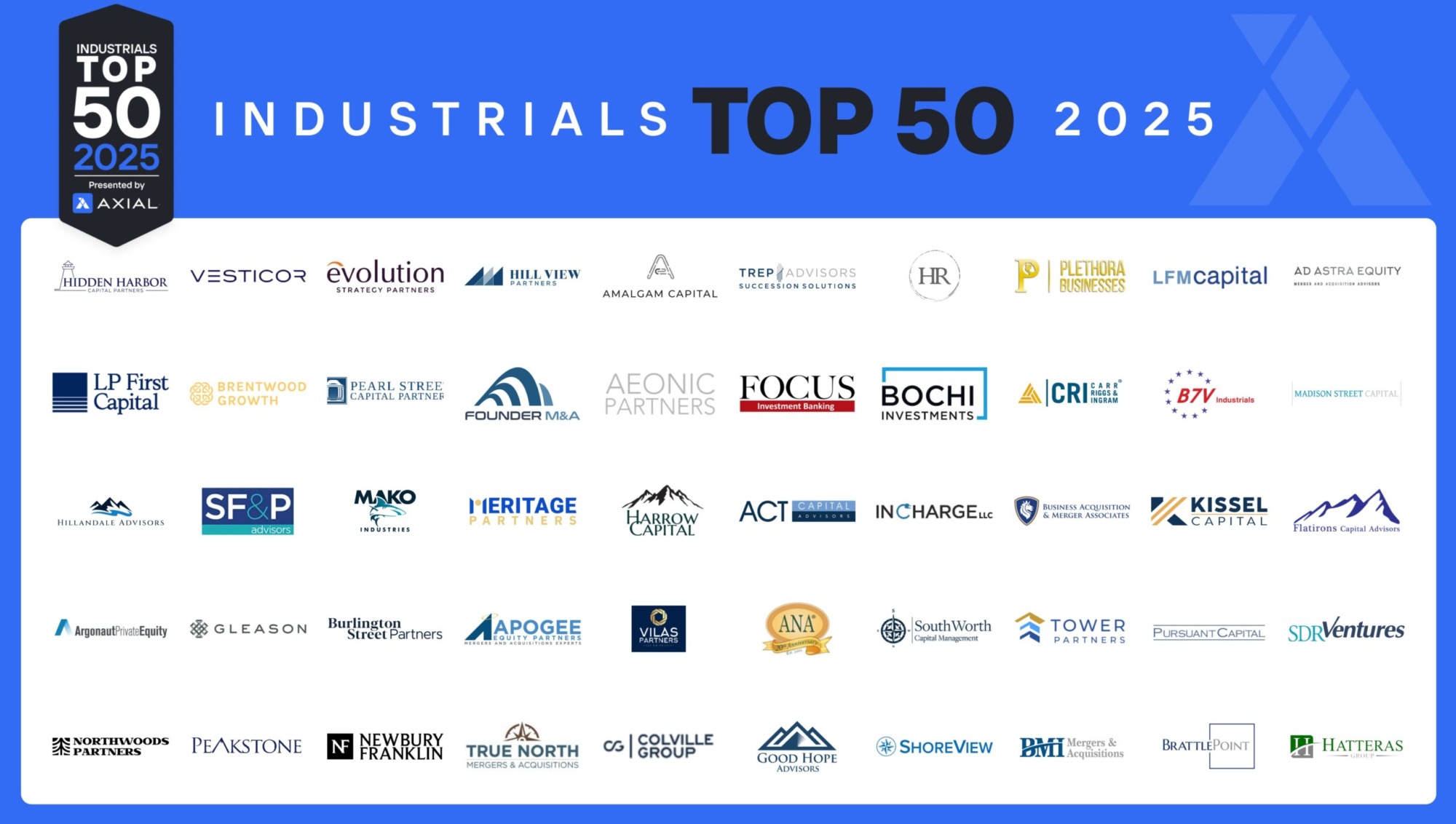
The Top 50 Lower Middle Market Industrials Investors & M&A Advisors [2025]
Industrials remains the most dominant sector in Axial deal flow, representing more than 25% of all deals brought to market…
Trinity Consultants, an air quality consulting firm based in Dallas, has made more than 20 acquisitions in the past 12 years. The majority of these deals were in the air quality space, a sector Trinity has been deeply involved in since its founding in 1974.
This familiarity with the air quality market meant that they were able to source most of their deals through existing relationships and word of mouth. Bankers and CEOs in the space knew Trinity and knew that they had an appetite for M&A.
“We know the players in the air quality consulting space quite well, just from playing in the market for the past 45 years, but it’s a relatively small market. The more we grow, the more we’re looking to diversify into adjacent service areas,” says Matt Berlew, director of M&A at Trinity Consultants. M&A has been an important part of Trinity’s growth strategy since the firm was first bought by a private equity firm in 2007 (Trinity is currently a portfolio company of Levine Leichtman Capital Partners).
In 2012, Trinity entered the toxicology space when it acquired SafeBridge Consultants, a toxicology and industrial hygiene consulting firm which serves clients in the life sciences sector. Looking for additional deals in that space, however, proved a challenge. “We aren’t known as buyers in the life sciences space. We haven’t had decades to canvass the landscape of logical extensions in the sector,” says Matt.
Trinity turned to Axial to tap into deals in new industries and from sources they wouldn’t otherwise have known about. “Axial brings deals to us and helps us think about the realm of possibilities that could make sense,” says Matt. One of these deals was ADVENT Engineering, a life sciences engineering consultancy with resources across the U.S., Canada, and Singapore. ADVENT focuses on process engineering and design work and often helps to certify and validate new lines of production, for example for new drugs in a biopharmaceutical plant. ADVENT was represented by CEO Ally, a Pittsburgh, PA-based advisory firm. “Without Axial, there’s no reason the company or their banker would have heard of us, and no reason we would have heard of them,” says Matt.
“Without Axial, there’s no reason the company or their banker would have heard of us, and no reason we would have heard of them.”
While ADVENT isn’t a toxicology and industrial hygiene services firm, it serves the same set of life sciences customers as SafeBridge, and therefore was a logical extension of the platform. “We had not specifically identified process engineering and design as part of our M&A strategy, but when the opportunity materialized, we took advantage. The deal fit our operational model, was a cultural match, and met our financial thresholds, which is typically one of the more difficult hurdles for us to get past.” In a field where many companies are led by engineers — who can be more motivated by complex problem-solving than providing highly efficient and niche services to their clients — it can be difficult for Trinity to find firms that meet their standard of at least 15% EBITDA margins.
Trinity will work to streamline back office operations for ADVENT, but plans to continue to operate it largely as an independent business. The company had four founding partners; one is staying on with the business in a transitional capacity as he nears retirement, while another has been promoted to CEO and plans to remain with the business long-term. “We haven’t added any additional management or leadership resources directly into their business, but we’ve alleviated some of the more administrative tasks their CEO was previously doing in order to facilitate their internal leadership transition and allow them to focus more operationally,” says Paul Greywall, director of business development at Trinity Consultants.
Meanwhile, Trinity continues to look for new acquisitions in a variety of sectors. “We’re looking for very niche, highly profitable leaders in providing high-end, technical services to the life sciences industries — that’s pharmaceuticals, bio-pharmaceuticals, and other related end markets,” says Paul. They are also interested in the broader natural and cultural resources space as well as process safety management, which entails the engineering, design, and maintenance of highly complex chemical and refining processes as regulated both under the Clean Air Act and OSHA. For platform companies, they are looking for a target size of $2 million or more in EBITDA; for firms in industries where they already have a presence, their minimum threshold is $500 thousand in EBITDA.
